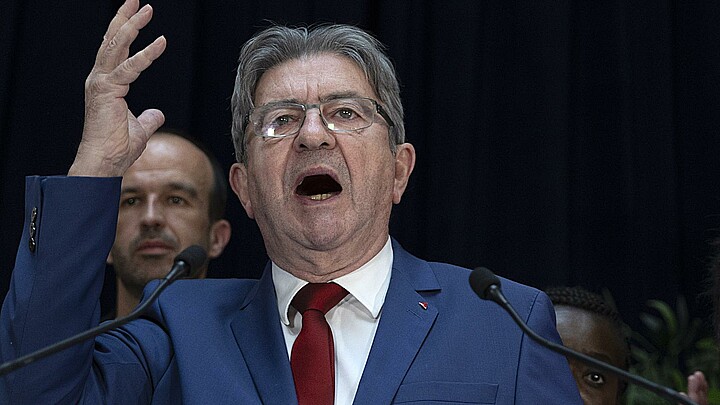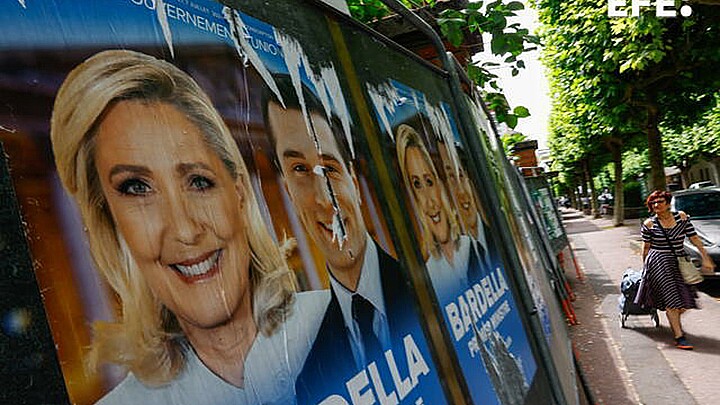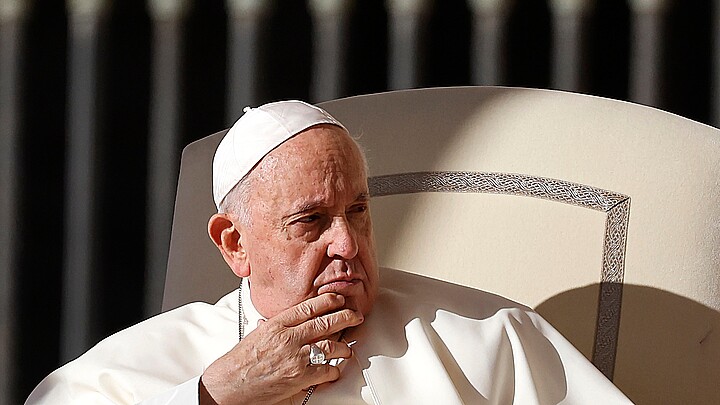Politics
Pope compares EU to Nazi, Communist dictatorships after guidebook bans use of the word "Christmas"
The head of the Roman Catholic Church called the document an “anachronism,” noting past attempts to extinguish Europe’s Christian roots
December 7, 2021 11:55am
Updated: December 7, 2021 1:07pm
Pope Francis compared the European Union (EU) to a Nazi or communist dictatorship when pressed about a now-withdrawn document which discouraged the European Commission staff from using the word “Christmas.”
The Argentine head of the Roman Catholic Church – who is often criticized for his anti-market positions – was asked to comment on the 32-page document titled “#UnionOfEquality while flying from Greece to Italy on Dec. 6, the Catholic News Agency reported.
The guide, which has since been withdrawn, instructed EU staff to use inclusive language – “human-induced” instead of “man-made,” for example – and also urged staff to “avoid assuming that everyone is Christian” and avoid referencing “Christmas” during the holiday season.
“Not everyone celebrates the Christian holidays, and not all Christians celebrate them on the same dates,” the document said.
Other recommendations included replacing Christian names such as Mary and John with "international" names such as Malika and Julio when using them as generic examples,
The Pontiff, however, called the document an “anachronism,” noting that a series of ideologies have, in recent times, attempted to extinguish Europe’s Christian roots.
“In history many, many dictatorships have tried to do it,” he explained. “Think of Napoleon: from there... Think of the Nazi dictatorship, the communist one... it is a fashion of a watered-down secularism, distilled water... But this is something that throughout hasn’t worked.”
Pope Francis continued to warn the EU against creating division among member states, saying “The European Union... must be careful not to take the path of ideological colonization. This could end up dividing countries and causing the EU to fail.”
“The European Union must respect each country's internal structure, its variety and not try to make them uniform — I don't think it will do that, it wasn't its intention, but it must be careful because sometimes they come and throw projects like this one out there,” he added.
But the Pope wasn’t alone in criticizing the EU document. In a Nov. 30 interview published by Vatican News, Vatican Secretary of State Cardinal Pietro Parolin said that the text was going “against reality” by downplaying Europe’s Christian roots.
“We know that Europe owes its existence and its identity to many influences, but we certainly cannot forget that one of the main influences, if not the main one, was Christianity itself,” he explained.
Similarly, Antonio Tajani, a former European Commissioner, tweeted his disapproval of the EU for waging a war on “common sense,” adding that, “Inclusion does not mean denying the Christian values of the #EU.”
Non far riferimento al “periodo natalizio” e non utilizzare nomi cristiani come “Maria o Giovanni” per non ledere la sensibilità degli altri. Queste le assurde indicazioni del documento diffuso dalla @EU_Commission. Inclusione non vuol dire rinnegare le radici cristiane dell’#UE.
— Antonio Tajani (@Antonio_Tajani) November 29, 2021
Brussels subsequently announced it was withdrawing the guidelines, and the EU Commissioner for Equality, Helena Dalli, admitted it was a “work in progress."
Concern was raised with regards to some examples provided in the Guidelines on Inclusive Communication, which as is customary with such guidelines, is work in progress. We are looking into these concerns with the view of addressing them in an updated version of the guidelines. pic.twitter.com/90ZK8rpPb2
— Helena Dalli (@helenadalli) November 30, 2021
The Pope also warned about the dangers of populism after being asked whether he was referring to specific countries when he referenced a “retreat from democracy” in a speech at the Presidential Palace in Athens on Saturday.
“I am thinking of a great populism of the last century, Nazism, which was a populism that, defending national values, as it said, ended up annihilating democratic life, indeed life itself with the death of the people, in becoming a bloody dictatorship,” he explained.
He continued to say:
“Today I will say, because you asked about right-wing governments, let’s be careful that governments — I’m not saying right-wing or left-wing, I’m saying something else — let's be careful that governments don’t slip down this road of populism, of so-called political ‘populisms,’ which have nothing to do with popularism, which is the free expression of peoples, who express themselves with their identity, their folklore, their values, their art.”










